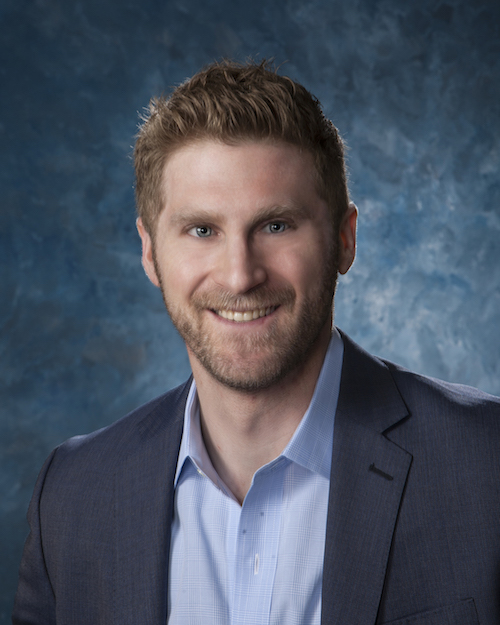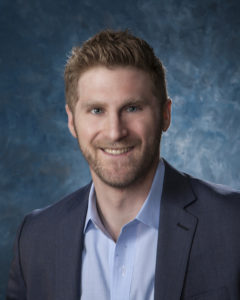CEO Leadership Series: Martin Lehr, CEO & Co-Founder, Context Therapeutics

A NEW POINT OF VIEW LEADS TO A POTENTIAL NEW TREATMENT
When venture capitalist Martin Lehr decided he wanted a better understanding of the biopharma companies he was funding, he co-founded Philadelphia-based Context Therapeutics in 2015 to literally learn on the job.
He and his co-founder, Felix Kim, Ph.D., an Associate Professor of Cancer Biology at Sidney Kimmel Cancer Center at Jefferson who now serves as an advisor to the company, started the company based on Dr. Kim’s preclinical research in Sigma1. In 2018, Context jumped at the opportunity to acquire a clinical-stage drug called Apristor® (onapristone extended release). Apristor is an oral antagonist of the progesterone receptor, which is enriched in breast, ovarian, and endometrial cancers and can be used as a biomarker to identify those patients who are most likely to respond to Apristor.
In an interview with Ashton Tweed, Mr. Lehr discusses the arrangement that makes Apristor’s clinical program more efficient and cost-effective, and the one thing he would do differently as CEO:
You started your career in research at Children’s Hospital of Philadelphia and Memorial Sloan-Kettering Cancer Center. What kind of research did you do?
I did basic research in DNA repair—basically, as far from translational research as one can get. DNA is often damaged through the normal cellular replication process. During the replication process there are always a small number of errors—so there needs to be a system to correct those defects in order for the DNA to replicate efficiently. What happens in cancer is that the DNA ends up having a lot of mutations, which then are carried forward without being recognized or corrected by that repair system. Or, there are mutations in that repair machinery itself and the cancer proliferates.
The drug class that was first approved to specifically target DNA repair is the PARP inhibitors used for women with ovarian cancer who harbor BRCA1 mutations. Women with a BRCA1 mutation have a significantly higher probability of having breast or ovarian cancer during the course of their life. So, my research focused on understanding the mechanisms of how that drug class works and if there were other DNA repair targets that could be exploited to treat other cancers.
Do you miss research?
I did a lot of research with mice, so no, I do not miss it at all. I did not like working with mice.
Aside from getting away from the mice, why did you change course and go into venture capital funding?
I’ve always been interested in finance and business; I was an Economics and Biology major in college, so it seemed like a reasonable transition for me. At the investment fund, Osage University Partners, I focused on biotech companies that were emerging— really, really early Phase II—and investing primarily in oncology companies, which is my research background.
What interests you about oncology?
That’s a great question. I sort of fell into it because my research focused on breast and ovarian cancers, and the drugs used to treat them. I very much like the interconnected network of biology and cancer is an area where you can do a lot of good.
You stayed in venture capital for six years. Why did you again change course and co-found a biotech company?
I had a great time in VC, but I wanted to learn about operating. I felt that to become the type of investor I respected, then I needed to learn how startups—the companies I was investing in—really worked.
Philly is a tremendous place to start a company. There’s great research and great talent. I started with technology from Drexel University and bought a drug called Apristor from Arno Therapeutics in New Jersey.
For me, it’s really about learning how to take a science and advance it into a real product, which is the goal.
Why is Context focusing on hormone-driven cancers like breast and ovarian cancer?
It’s a series of cancers that affect a large part of the population, globally and in the U.S. The treatments for breast and ovarian cancers are estrogen blockers and chemotherapy and not a lot in between, and so there’s a lot of room to improve and help patients.
The overall survival rate in these cancers—so, the time from metastatic diagnosis to death—hasn’t changed in 20 years. We can do a lot of good by providing a drug that has a very good safety profile and can positively impact the patient. For us, a good safety profile means you wouldn’t know the woman has cancer. There’s no hair loss, there’s no jaundice, there’s no graying skin. They’re living life as they want to live, and we’re keeping their cancer in check.
Your clinical program is “investigator run.” What does that mean?
It means we have partnered with academic institutions and some really well-regarded, very capable researchers who are so interested in our product and believe it could be good for patients that they want to run the trials themselves. Most often, these are very small, long-term exploratory trials. We flip that arrangement to have shorter trials and a much larger number of patients and partner with more than one institution.
What are the benefits of this arrangement?
It’s an efficient, cost-effective way for us to run our trials. Because the universities are running our trials, you don’t need a full medical team or a full regulatory team. They take on a lot of those activities and we pay for it through them. So, it’s a very scalable model.
The benefit for the research institution is it enables them to be the first ones using the drug, so we’re creating an exclusive relationship. And it’s a way for them to differentiate themselves versus another institution, and it, ultimately, helps them in rankings, prestige and more patients.
How many employees does Context have?
Just me. It’s a totally virtual company; everyone’s a contractor. I work closely with about eight contractors and about 20 contractors overall.
What’s happening with the development of Apristor?
Apristor is an oral progesterone blocker. Progesterone is an interesting target because, for many patients, breast and ovarian cancers are driven by estrogen and progesterone. To date, only estrogen blockers have been developed; our thesis is that when you combine a progesterone blocker with an estrogen blocker, you get a complete hormone blockade.
We have the only progesterone blocker in our clinic and we’re really excited about that. By the end of the year, we’ll have four clinical trials up and running.
As a first-time CEO, what has been your biggest challenge?
Probably capital raising. It’s convincing investors that I know what I’m doing, that the plan that I’ve put together based on interactions with our board and various outside parties is sound, and that we will create value for investors. That’s hard for a first-time CEO.
Is there anything you would do differently?
I think what I’d have done differently is keep a lower profile post-acquisition of our Phase II drug. I would have waited until I had the full plan, everything was pressure tested, and had some new data in our hands before going forward.
The questions we got from investors were, “What’s new? What are you going to do differently?” And all I really had was a plan, as opposed to any hard data showing what’s different. So, I would’ve kept a stealthier profile.
You’re on the board of several organizations. Why is that important?
I’m the director for the Philadelphia region of BioBreak, a peer networking group for biotech executives. The idea is to get these folks together to stimulate conversations and, ultimately, create deals and stimulate the formation of the next generation of companies in Center City. So, the idea is to create density within the city, and then trickle-down hiring. So, this will stimulate the formation of companies that will then hire people. That’s ultimately the goal: More jobs.
I’m also on the board of Integral Molecular, an antibody discovery firm in Center City. And I’m on the board of CureDuchenne, a national venture philanthropy organization that raises money to invest in companies or products that can treat Duchenne muscular dystrophy. I had a brother with Duchenne, so I have a personal affiliation with that group.
You’ve mentioned “doing good” several times. Why is that so important to you?
I think it’s a part of the agreement, the social pact between biopharmaceutical companies and the investment community. Our companies have to be for-profit; that way, we generate a return for our investors so that more innovations can be created. But profit should not be the only driver. And vice-versa, the way you generate the best profit is to create the best product. So, I think it all comes down to the social pact with patients that you’re going to do the best you can for them to improve their lives, and that way, everyone wins.
Ashton Tweed would like to thank Martin Lehr for this interview. If your company needs help from members of the Ashton Tweed Life Sciences Executive Talent Bank, we can supply that assistance either on an interim or a permanent basis. Additionally, if you are among the many life sciences professionals affected by the changes in the industry, Ashton Tweed can help you find the right placement opportunity — from product discovery through commercialization at leading life sciences companies — including interim executive positions and full-time placements. In either case, please email Ashton Tweed or call us at 610-725-0290. Ashton Tweed is pleased to continue to present insightful articles of interest to the industry.
 Martin Lehr
Martin Lehr
Martin Lehr is the CEO and co-founder of Context Therapeutics. Previously, Mr. Lehr worked at Osage University Partners. He also conducted research at the Sloan Kettering Institute and at the Children’s Hospital of Philadelphia. Mr. Lehr is the Director of the Philadelphia chapter of BioBreak, a biotech executive peer networking group.
Mr. Lehr is also a member of the Scientific Advisory Board of Integral Molecular, the Editorial Advisory Board of Life Science Leader magazine, and the CureDuchenne Ventures board. He earned a master’s degree in Biotechnology from Columbia University and a bachelor’s degree in Economics from the University of Pennsylvania. Mr. Lehr lives in Philadelphia with his wife and their two sons, ages 3 and 5.





